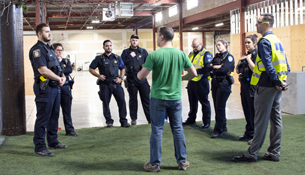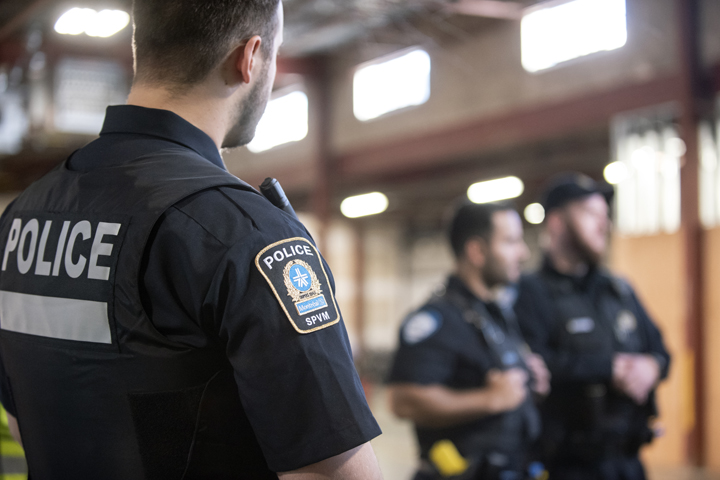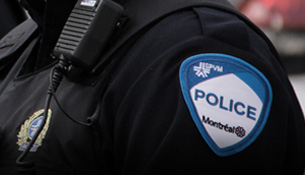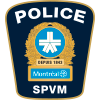
Containment and de-escalation training
Because they work on the road in urban areas, many police officers from the Service de police de la Ville de Montréal (SPVM) are likely to act as first responders in a crisis situation.
That is why the SPVM offers them a containment and de-escalation training. By 2022, all SPVM officers will have completed this two-day training. The first day covers basic containment principles. It is a pre-requisite for the following day's course on de-escalation.

Responding to a crisis
First, the patrol officers develop the skills allowing them to establish a perimeter as first responders in an effort to contain one or more subjects and prevent the situation from escalating or moving.
They then take the course on de-escalation. Learning and integrating new communication skills enables police officers to direct the intervention so as to peacefully resolve a crisis or tense situation while ensuring their safety and the safety of others.
|
|
Experiencing potential complex realities on the field
During this training, participants will face scenarios and simulations, and practise the various notions learned in class in the field. The SPVM use-of-force coaches become actors. Professional actors are also involved. Feedback sessions reinforce the learning process.
Note: The containment and de-escalation training is part of the police training continuum in college, at the École nationale de police du Québec and on the job.
FIND OUT MORE
Helpful resources
People who are mentally disturbed or in crisis situations
Publications
La formation en désescalade et les clientèles vulnérables - Commission de la sécurité publique
Plan d'action en santé mentale 2015-2020 – Faire ensemble et autrement - Ministère de la Santé et des Services sociaux
IN THE MEDIA
Santé mentale: le SPVM formera tous ses patrouilleurs d’ici 2022 - La Presse, April 5, 2019
Other innovative police practices at the SPVM
Équipe mobile de référence et d’intervention en itinérance (ÉMRII)
Équipe de soutien aux urgences psychosociales (ÉSUP)
RIC (Réponse en intervention de crise) patrol officers



